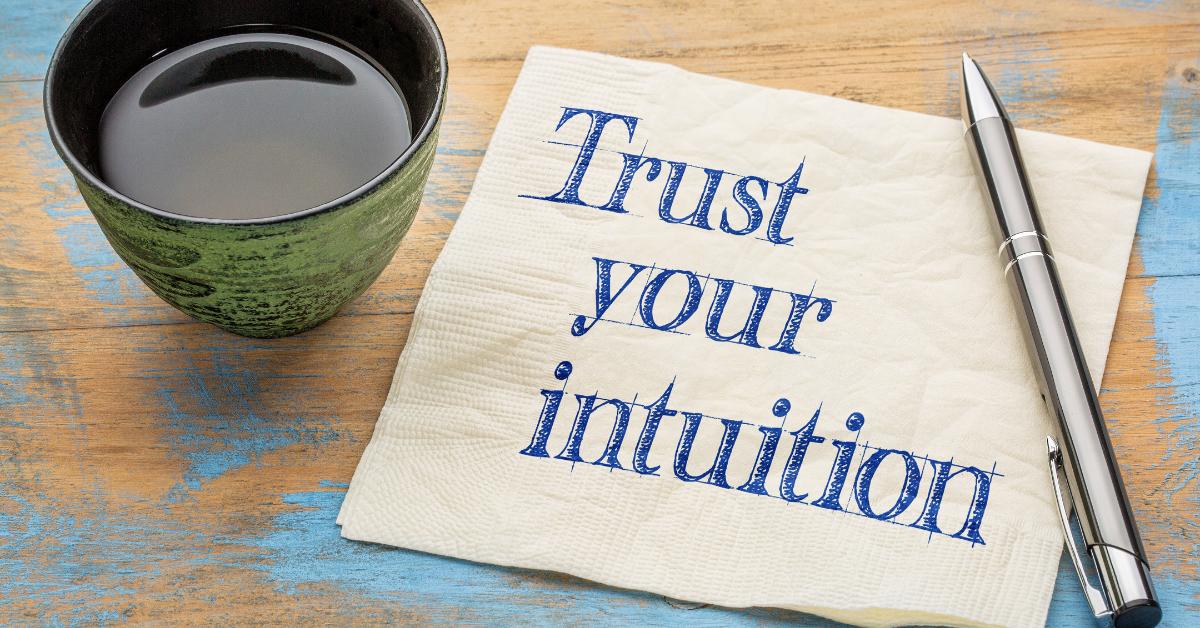Intuition can seem like a controversial topic because it’s intangible—you can’t touch it or see it with the naked eye. As a result, some people either deny its existence or equate it with having a well-thought-out plan and a bit of luck. However, if we accept that intuition is real, it’s worth exploring when to trust it and when to question it.

Many people confuse intuition with fear. When they start to feel uneasy or anxious, they might say, “My intuition is telling me not to do this…” In reality, they could be experiencing fear or lacking sufficient information about the situation. This confusion often leads to mistaking fear for intuition. To navigate this, it’s important to clearly differentiate intuition from other emotions and make it more distinct from feelings of fear or uncertainty.
Real intuition is based on 4 important things. Let’s look at each of them individually…
1. Trust
If you feel you can trust a person, then, most likely you’re right. But when you feel you can’t trust, then, it is important to evaluate the nature of this voice. It can be intuition, fear, doubt or past experiences. When you understand the nature of this voice, you go onto a different level of awareness.
Intuition brings information in a neutral, unemotional way, like seen in a movie. Fear or past experiences bring emotionally charged information (negative charge or positive charge).
The voice of intuition is subtle, quiet and calm and it comes in a flash. The voice of fear is loud, emotional and continuous. Fear screams at you.
2. Action
Intuition develops faster when you start acting and making decisions rather than procrastinating and “sitting on your hands”. Therefore, don’t be afraid to make a first step and listen to your body at the same time. Don’t criticize, don’t judge. Just start acting towards your goal and see what happens.
There are very specific forms of intuition. For example, business intuition or medical intuition. These kinds of intuition can only grow with experience, and over time with continuous practice.
To develop a specific kind of intuition, try to take a few more steps towards your goal, and see how you become better and better in what you do. Then, see how much you can intuit things in this area.
3. Faith
Having faith in yourself and in the flow of life, facilitates intuitive development. Whatever you do, do it with faith – in your work, in people, and your intuition. Faith shouldn’t be blind. Therefore, you should look for physical confirmation of things and correct yourself if anything goes wrong.
Having faith in people brings you confidence. You stop feeling afraid of meeting new people. Even when a person lets you down, hold your faith in him/her. Sometimes even bad people start doing good things, when they see that they are trusted.
4. First thought
It can be difficult to trust your first thoughts. Often, people doubt and dismiss their first thoughts. From an intuitive perspective, the first thought is a very important thought. Learn to notice your first thoughts and value them.
If your head is full of thoughts, write them all down. Then read them separately aloud and try to sense which thought was the first one. The thought you connected with the most – the intuitive thought.
When connecting to your thoughts try to understand their origin. Ask: “Does this thought come from intuition? From past experiences? From fear? Is this thought emotional or neutral? Does this thought scream at me or bring me certainty and grounding? “
If you are interested in learning more about Intuitive Healing and Medical Intuition, I invite you to explore my Intuitive Healing Practitioner 11-week course. In this course, you will learn all the secrets of intuitive healing.

